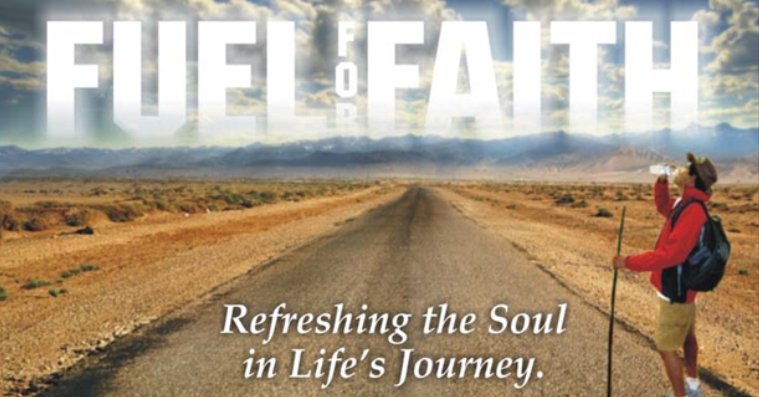
Happiness is something everybody wants yet nobody seems to have enough. It’s a lifelong pursuit for some who imagine that their happiness is just on the horizon. For most of us happiness is like chasing a mirage, we feel like we are almost there, yet we never get hold of it, it constantly eludes us. As a generation we are bombarded with ads and commercials of products and things that promise to make us happy, but end up making us miserable because though some things can give us temporary pleasure they fail to touch or quench our inner thirst for joy or fulfilment. Happiness is based on external happenings, while joy is the inner peace and satisfaction that is unmoved by the challenging circumstances around us. However, for this meditation I will use these terms interchangeably.
A lot has been said and written about happiness by philosophers, religious leaders, thinkers, psychologists and scientists. Many define happiness as a state of being that is largely created and determined by one’s own proactive choices. It’s interesting to note that many believe that happiness is defined more by our psychological disposition rather than our physical position. Did you ever wonder if happiness has anything to do with our DNA? I often wondered why some people are naturally cheerful most of the time, while there are those who walk around with a permanent gloom on their face as if the whole burden of the world is on their shoulders. I was curious to see if our cheerfulness or gloom was a genetic predisposition.
Happiness is a lifelong pursuit for some who imagine that their happiness is just on the horizon.
David Lykken, professor emeritus of psychology at University of Minnesota said “”Happiness is genetically influenced, although it is not genetically fixed. The brain’s structure can be modified through practice. If you really want to be happier than your grandparents provided for in your genes, you have to learn the kinds of things you can do, day by day, to bounce your set point up and avoid the things that bounce it down.” In other words he is saying that we are not destined with a fate or with a face, we can actually train our mind to be content and happy. William Barclay once said “Joy has nothing to do with material things, or with man’s outward circumstance…A man living in the lap of luxury can be wretched, and a man in the depths of poverty can overflow with joy.”
“A happy person is not a person in a certain set of circumstances, but rather a person with a certain set of attitudes.” – Hugh Downs
French writer Marcel Pagnol says “The reason people find it so hard to be happy is that they always see the past better than it was, the present worse than it is, and the future less resolved than it will be”. It is true that life is not a bed of roses, but it also important to intentionally remind ourselves that it is neither a path full of thorns. Hugh Downs says “A happy person is not a person in a certain set of circumstances, but rather a person with a certain set of attitudes.” We may not be able to control the external circumstances but God gives us enough strength to choose right attitude no matter what we are going through. Barry Kaufman the author of the book “Happiness is a choice” writes “Each of us can, in a simple and easy way, access an amazing attitudinal advantage within ourselves once we come to know that happiness (and love) is a choice and misery is optional (not inevitable).”
Before some of you start wondering that I am beginning to sound like one of those “positive thinking” gurus, let me clarify that I personally believe that happiness is determined more by our mindset than by our physical situation, but ultimately what determines our happiness most is our spirituality and not just our psychology. As Christians we can learn from secular psychologists but our understanding of happiness will be very shallow and dry as long as we ignore the spiritual dimension that determines true happiness. John Templeton says “Happiness comes from spiritual wealth, not material wealth… Happiness comes from giving, not getting. If we try hard to bring happiness to others, we cannot stop it from coming to us also. To get joy, we must give it, and to keep joy, we must scatter it.” This explains why some people who seem to have almost everything the world can give still express emptiness and yearn for true happiness.
Charles R Swindoll writes “I have discovered that a joyful countenance has nothing to do with one’s age or one’s occupation (or lack of it) or one’s geography or education or marital status or good looks or circumstances…Joy is a choice. It is a matter of attitude that stems from one’s confidence in God – that He is at work, that He is in full control, that He is in the midst of whatever has happened, is happening, and will happen. Either we fix our minds on that and determine to laugh again, or we wail and whine our way through life, complaining that we never got a fair shake. We are the ones who consciously determine which way we shall go.” The apostle Paul was in a prison (a cold and dark dungeon) where he had no bed to sleep, no feast to enjoy, no friends to chat, Yet from this dungeon he writes to his friends “Rejoice in the Lord always, I will say it again: Rejoice” (Phil 4:6). True Happiness is a choice, everybody can choose to be happy and experience it for some time, but It’s impossible to have deep and lasting happiness without a personal relationship with God through Jesus Christ.
“A man living in the lap of luxury can be wretched, and a man in the depths of poverty can overflow with joy.” – William Barclay
– – Author: Rev. Francis Burgula – –
